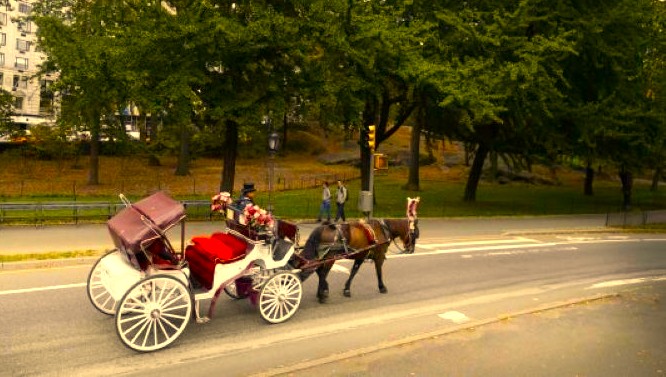Carriage Driver Acquitted in Horse Collapse Animal Cruelty Case
A New York City horse carriage driver was acquitted on Monday of animal cruelty charges in a case involving a collapsed horse near Times Square.
A six-member jury found Ian McKeever not guilty of overworking Ryder, a carriage horse that collapsed while returning to its stable on an 84-degree Fahrenheit (29-degree Celsius) day in August 2022. The horse lay on a city avenue for nearly an hour, surrounded by bystanders and police officers who cooled it with water and ice. Ryder eventually stood up to cheers from the crowd.
McKeever had pleaded not guilty to the misdemeanor charge. His attorney, Raymond Loving, stated the horse was not overworked and had tripped while changing lanes on a Manhattan street.
“The verdict was very gratifying. This has been an ordeal for him,” Loving said by phone, adding, “the evidence just didn’t support the charge.”
Manhattan District Attorney Alvin Bragg stated that the prosecution presented “a thorough case based on the facts and evidence.”
New York’s horse-drawn carriages have long been a part of the city's culture, frequently seen in Central Park. Animal rights advocates have called for a ban, citing incidents involving horse injuries and collapses. Supporters argue the industry provides jobs and a purpose for surplus farm and racehorses.
McKeever, an Irish immigrant, has worked as a carriage driver for decades. His brother owned Ryder.
Veterinarian Dr. Camilo Sierra testified that Ryder was estimated to be between 28 and 30 years old, later determining the horse to be 26, the maximum legal age for carriage work. Police Sergeant Vincent Fontana testified that McKeever told him Ryder was 13.
On August 10, 2022, Ryder spent over seven hours outside, mostly in Central Park, taking passengers on two trips during the day.
Passerby Caroline Londahl-Smidt testified she became concerned after noticing the horse’s visible ribs and difficulty climbing a hill. She said McKeever shook the reins in an apparent attempt to make Ryder move faster.
Prosecutor Sophie Robart argued McKeever “pushed Ryder beyond his limits” until the horse collapsed.
After leaving the park, Ryder collapsed, and a bystander video published by the New York Post showed McKeever snapping the reins and telling the horse to get up.
McKeever’s attorney stated the horse was neither overheated nor mistreated. McKeever, 56, testified that he tried to get the horse to stand because prolonged lying down can be harmful to horses.
Fontana measured Ryder’s temperature and found it normal, with slightly elevated breathing, after the horse had been cooled with water. That evening, Dr. Sierra examined Ryder and reported normal vital signs but noted the horse was underweight and walked weakly. Sierra said he believed Ryder had a neurological condition.
Two months later, Ryder was euthanized due to illness. A necropsy determined the horse had bone cancer.
Carriage drivers' union shop steward Christina Hansen stated Monday that the union has since improved access to a horse hospital. “Drivers enter this line of work because we love animals,” she said.
Animal rights activist Edita Birnkrant, leader of NYCLASS, called the verdict “heartbreaking” and reiterated a call for the city to stop issuing new carriage driver licenses.
In 2013, another Manhattan carriage driver was charged with animal cruelty for working a horse with an injured hoof. That driver later pleaded guilty to disorderly conduct and was sentenced to community service. Court records for that case are sealed.

COMMENTS (0)
Sign in to join the conversation
LOGIN TO COMMENT